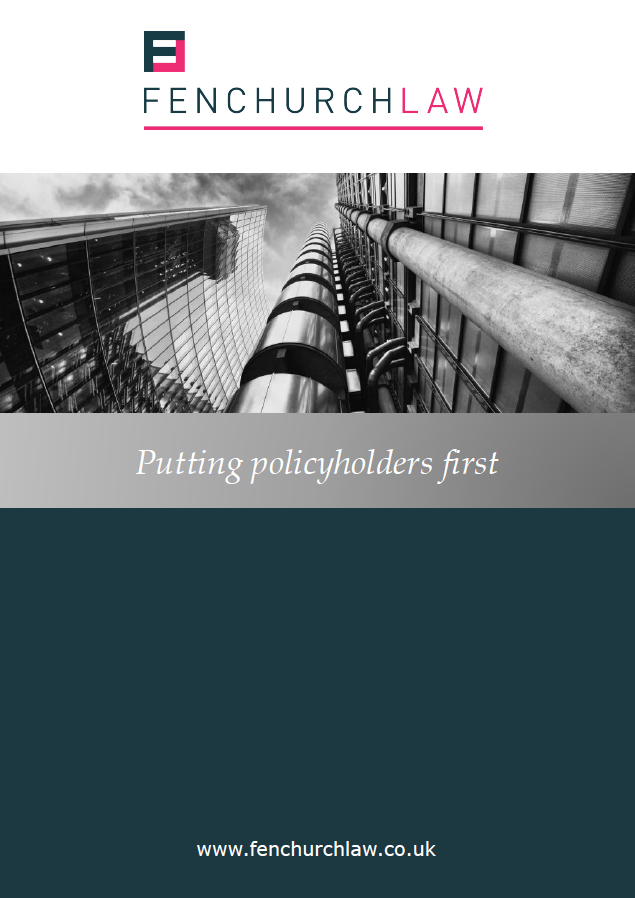
“Condoning dishonesty”: Discovery Land Co LLC & Ors v Axis Specialty Europe SE
Those dealing with Solicitors’ professional indemnity claims will know that the SRA Minimum Terms are intended to provide very wide cover, and will indemnify claims involving dishonesty unless the dishonest act/omission in question was committed or condoned by all the partners in the firm or by all the members of an LLP.
What is meant in this context by “condoning” was considered in the recent case of Discovery Land Co LLC & Ors v Axis Specialty Europe SE [2023] EWHC 779 (Comm), a decision by Robin Knowles J.
The Claimants were the victims of two multi-million pound frauds carried out by Mr J, a solicitor, who was a Member of Jirehouse Partners LLP and a director of two related legal practices, Jirehouse and Jirehouse Trustees Ltd (collectively, “Jirehouse”). A second person, Mr P, was likewise a member/director of the relevant entities.
Mr P hadn’t been involved with the two frauds – indeed, he resigned shortly after discovering them – but Jirehouse’s professional indemnity insurer (Axis) sought to decline indemnity by arguing that he had nevertheless condoned them.
Axis’s policy provided that
“EXCLUSIONS
The insurer shall have no liability under the policy for:
…
2.8 FRAUD OR DISHONESTY
Any claims directly or indirectly arising out of or in any way involving dishonest or fraudulent acts, errors or omissions committed or condoned by the insured, provided that:
(a) the policy shall nonetheless cover the civil liability of any innocent insured; and
(b) no dishonest or fraudulent act, error or omission shall be imputed to a body corporate unless it was committed or condoned by, in the case of a company, all directors of that company or, in the case of a Limited Liability Partnership, all members of that Limited Liability Partnership.”
The court accepted that in this context to “condone” was an ordinary word meaning to convey acceptance or approval, and in some situations it does not require an overt act.
Axis’s case was that the frauds formed part of a longstanding pattern of dishonest behaviour on the part of Mr J, involving the temporary – but still unquestionably prohibited – practice of using client monies to address temporary cashflow problems, and various other dishonest acts, and that Mr P had been aware of or had turned a blind eye to that pattern.
Seemingly supportive of that argument were cases such as Zurich Professional Ltd v Karim [2006] EWHC 3355 (QB) and Goldsmith Williams v Travelers Insurance Co Ltd [2010] EWHC 26 (QB), where it had been held it was sufficient for two partners to have condoned the dishonesty of a third partner (the actual fraudster) when they were aware a persistent course of dishonesty by that partner, even if they weren’t aware of the actual act of fraud which had given rise to the claim.
However, that type of argument failed in this case. Robin Knowles J held that Mr P needed to have condoned the acts through which the two frauds by Mr J had been committed, and that simply condoning the occasions on which Mr J had illicitly “borrowed” client monies or his various other dishonest improprieties wasn’t sufficient.
Robin Knowles J’s assessment of Mr P was as follows:
“In my judgment the true story of this case is that [Mr P’s] standards fell well below those required in his profession. Indeed there are episodes that show he was untrustworthy and prepared to behave dishonestly. But these episodes were not such as to justify a conclusion that he in any way appreciated that [Mr J] could be embarked on multi-million pound fraud, extracting client monies in connection with the commercial entities with which he was involved. [Mr P] did not condone, either generally or specifically in relation to the two claims, what AXIS described in closing as a Ponzi scheme by [Mr J] …”
Robin Knowles J felt able to distinguish the two previous authorities mentioned above on this basis:
“…in Karim the Court accepted that the two condoning partners knew that flows of money out of the firm to themselves could not come legitimately from the income of the firm. In Goldsmith Williams, the Court found that, before the relevant transactions, the condoning partner engaged in mortgage fraud in her own right and knew that her partner did. There are not true parallels between those facts and the facts of the present case.”
Perhaps a more valid point of distinction was that, as the Judge noted in passing, the wording of the policy in this case was subtly different to the Minimum Terms considered in the two earlier cases. Those cases had required an assessment of whether the “dishonesty [of] or [the] fraudulent act or omission [by]” the fraudulent partner had been condoned by the other partner(s). In the present case, the wording of Axis’s policy had been replaced with a reference to the “dishonest or fraudulent acts, errors or omissions” committed by the fraudulent partner. Accordingly, condoning a general pattern of dishonesty was plainly not enough: the other partner must have condoned some specific dishonest acts or omission with which the claim in question was directly or indirectly involved.
The full judgment can be found here:
https://www.bailii.org/ew/cases/EWHC/Comm/2023/779.html
Jonathan Corman is a Partner at Fenchurch Law
Other news
Timing is everything – Makin v QBE and the cost of not complying with a condition precedent
3 July 2025
This recent decision from the High Court provides a powerful reminder of the consequences of not complying with a…
You may also be interested in:
Archives
Categories
- Case Law
- Professional Risks
- Press Release
- Uncategorized
- The Good, the Bad and the Ugly
- Fenchurch Law Webinars
- Stonegate
- Newsletter
- Events
- Webinars
- Comparing German and English Insurance Law – A Series
- Construction Risks
- Operations
- Business Development
- Construction & Property Risks
- News
- International Risks
- Legislation
- Financial & Professional Risks



